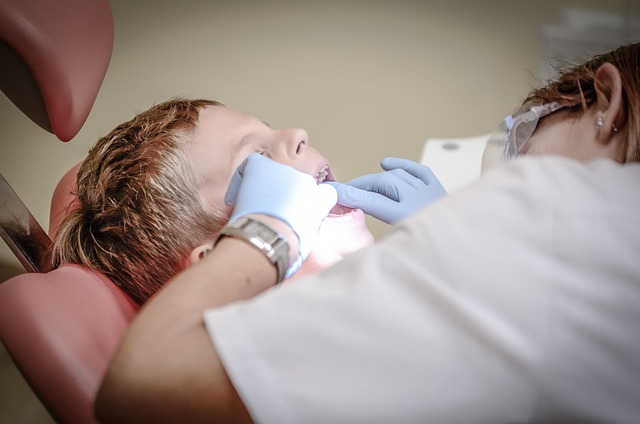Dental professionals require specialized insurance for dental professionals to safeguard against negligence claims, misdiagnosis, and changing regulations. This includes general liability coverage, dental-specific protections, and customizable options like business income loss. Choosing insurers with expertise in dental risks, evaluating policy terms, and understanding exclusions are key. Best practices for risk management include protocol updates, staff communication, record-keeping, and continuing education to enhance patient safety and trust while leveraging insurance for dental professionals as a shield against financial and reputational risks.
In the dynamic field of dentistry, ensuring robust protection against malpractice claims is paramount. This comprehensive guide explores tailored insurance coverage for dental professionals, delving into essential needs, various policy types, and key components. We navigate the nuances of professional liability plans, offering insights on assessing insurers and understanding common exclusions. Moreover, best practices for risk management are highlighted to empower dentists with proactive measures, ensuring peace of mind in their practice’s resilience against potential liabilities. Discover how comprehensive insurance for dental professionals can safeguard your career and patients’ trust.
- Understanding Dental Malpractice Coverage Needs
- Types of Insurance Policies for Dentists
- Key Elements in Dental Professional Liability Plans
- How to Assess and Compare Dental Malpractice Insurers
- Common Exclusions and Limitations in Dental Insurance
- Staying Protected: Best Practices for Dentist Risk Management
Understanding Dental Malpractice Coverage Needs

Dental professionals, like any other healthcare providers, face unique risks and responsibilities that require specific insurance coverage. Understanding dental malpractice coverage needs is crucial for protecting both practitioners and their patients. This type of insurance safeguards dentists from potential financial losses due to claims of negligence or misdiagnosis.
When it comes to insurance for dental professionals, several factors should be considered. First, the scope of practice plays a significant role; whether a dentist specializes in a particular area or offers a wide range of services, their coverage needs may vary accordingly. Additionally, keeping up with changing regulations and industry standards is essential to ensuring adequate protection against evolving malpractice risks.
Types of Insurance Policies for Dentists

Dental professionals, like any healthcare providers, require specialized coverage to safeguard against potential malpractice claims. The specific insurance for dental professionals often includes several types of policies designed to cover different aspects of their practice.
Common types include professional liability insurance, which protects dentists against claims of negligence resulting in patient harm. Additional coverage may extend to dental malpractice insurance, covering costs associated with legal defense and settlements. Some policies also offer practice disruption coverage, ensuring financial stability during periods of practice closure due to malpractice incidents or other unforeseen circumstances.
Key Elements in Dental Professional Liability Plans

Dental professional liability plans, also known as malpractice insurance, are crucial for dentists seeking comprehensive protection against potential risks and lawsuits. When tailoring insurance for dental professionals, several key elements should be considered to ensure adequate coverage. First and foremost, the plan must include comprehensive general liability coverage to protect against claims of bodily injury or property damage that may arise during routine procedures. This coverage acts as a financial shield, covering legal fees and settlements if a patient files a lawsuit.
Additionally, dental-specific coverage options should be included, such as professional liability, which protects against allegations of negligence or malpractice related to dental care provided. This includes coverage for misdiagnosis, incorrect treatment plans, and errors in procedures. Specialized coverage for dental professionals also extends to property damage caused by equipment failure or accidental harm to patients’ belongings during their visit. Customized insurance plans should also consider additional options like coverage for business income loss, which can protect dentists from financial setbacks if they need to suspend operations due to a covered incident.
How to Assess and Compare Dental Malpractice Insurers

When assessing and comparing dental malpractice insurers, it’s crucial to consider several factors that go beyond price. Firstly, evaluate the insurer’s experience and specialization in handling dental malpractice claims. Look for companies with a proven track record in understanding the unique risks and challenges faced by dentists. Secondly, examine their coverage limits and policy terms. Ensure the policy offers adequate protection for your practice, including comprehensive general liability and professional liability coverage. Compare the scope of services covered under each policy, such as legal defense fees, court costs, and settlement or judgment payments.
Additionally, research the insurer’s reputation for responsiveness and customer service. Dental professionals need insurers who are prompt in handling claims and providing support during difficult situations. Consider the ease of communication, claim filing processes, and access to dedicated account managers. Opting for an insurance company with a transparent claims settlement history and a commitment to ethical practices can significantly impact the protection and peace of mind you receive as a dental professional.
Common Exclusions and Limitations in Dental Insurance

Many dental insurance policies come with common exclusions and limitations that dentists should be aware of. These can include, but are not limited to, pre-existing conditions, which often require separate coverage or a waiting period before becoming insured. Cosmetic procedures, such as teeth whitening or braces, are frequently excluded from basic plans, emphasizing the need for specialized insurance tailored for dental professionals.
Additionally, routine check-ups and cleanings are usually not covered by insurance, as they are considered preventive care. Policies may also limit the amount of compensation for certain complex procedures due to varying levels of risk and potential outcomes. Understanding these exclusions is vital for dentists in navigating the complexities of insurance for dental professionals.
Staying Protected: Best Practices for Dentist Risk Management

Staying Protected: Best Practices for Dentist Risk Management
In the dynamic field of dentistry, where precision and patient safety are paramount, malpractice coverage tailored for dentists plays a vital role in safeguarding professionals from potential risks. Beyond ensuring compliance with legal requirements, insurance for dental professionals acts as a crucial shield against financial repercussions stemming from unforeseen errors or negligence. To optimize protection, dentists should proactively engage in robust risk management strategies. This involves regularly reviewing and updating practice protocols to adhere to the latest standards of care, fostering an environment that encourages open communication about potential risks among staff, and maintaining meticulous records of patient treatments and consent forms.
Additionally, staying current with continuing education courses focused on risk mitigation and legal updates is essential. By integrating these best practices into their daily operations, dentists can enhance patient satisfaction while safeguarding their professional integrity. Effective risk management not only mitigates financial exposure but also underscores a commitment to delivering exceptional dental care, fostering trust among patients and peers alike.
